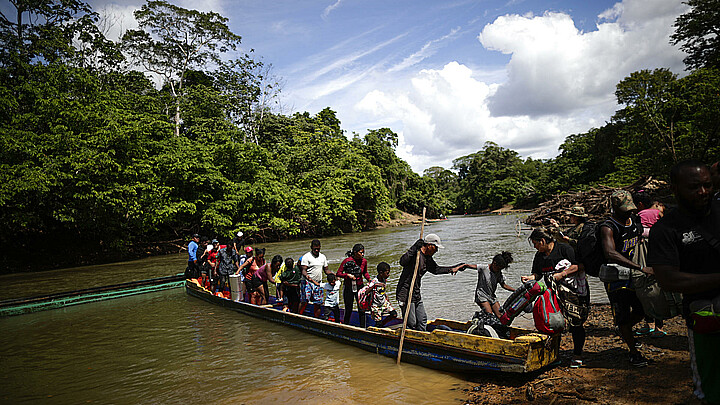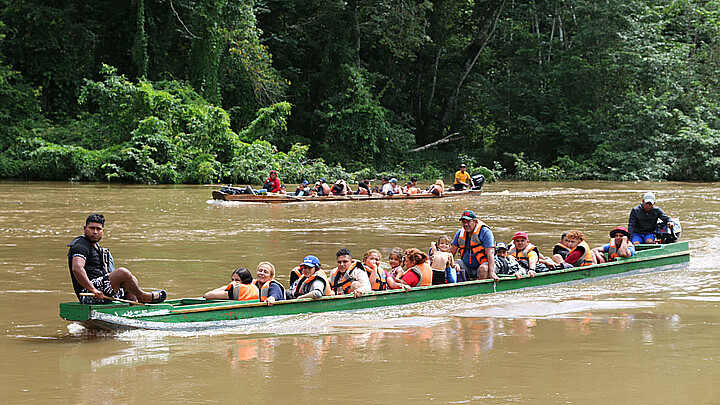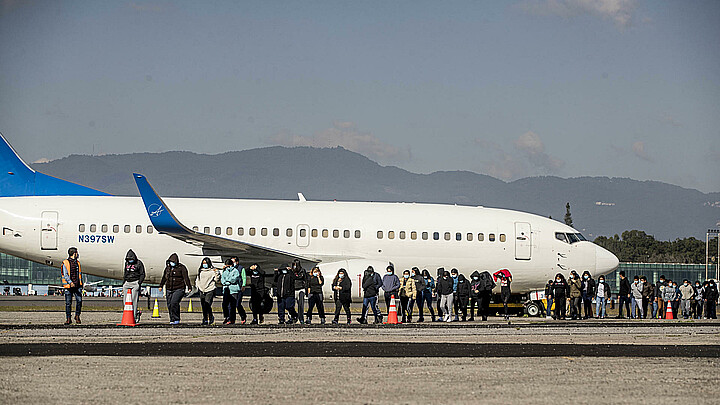Immigration
Panama considers closing Colombian border as immigration crisis strains political relationship
Panama, the gateway to Central America from the south, receives around 3,000 migrants per day.
August 30, 2023 10:55am
Updated: August 31, 2023 8:25am
Panamanian officials announced it will evaluate a possible closure of the border with Colombia due to the increase in migrants crossing the Darien jungle, located between these two countries.
The Panamanian government said it will take "strong" measures to curb migration through the Darien Gap, citing a lack of "international cooperation" to address the migratory phenomenon on its border with Colombia.
More than 320,000 people have crossed their borders in 2023 alone, mostly Venezuelan citizens, followed by Ecuadorians and Haitians, according to Panamanian authorities.
Panamanian immigration services also warn of an increase in Chinese and Indian migrants, as well as the fact that 21% of those crossing the border are minors, and of these, half are under five years old.
This year's figure surpasses the 248,284 migrants who crossed the Darien in 2022 and the 133,726 in 2021, according to official data from Panama.
The situation on the border between Colombia and Panama through the Darien Gap may strain the relationship between both countries due to these statements, which led to a ministerial visit to the conflict zone to assess the measures that will be taken to halt migration.
Panama, the gateway to Central America from the south, receives around 3,000 migrants per day, to whom, at certain stations, biometric data is collected and medical and food assistance is provided. This unique operation on the continent has seen an investment of "nearly 70 million dollars" by the country in recent years, as per Panamanian authorities.
Panamanian security forces are also carrying out a special operation at the border, rescuing migrants abandoned by traffickers and capturing some of these criminals who have assaulted, violated, or even murdered travelers.
These migrants, including whole families with children, some with newborn babies, walk a 266-kilometer journey filled with dangers, from the wild environment of the Darien Gap, a Panamanian national park, to the presence of criminal groups committing all sorts of crimes.
Migrants' testimonies are terrifying: deaths along the way due to accidents, animal attacks, or criminals; suicides; women and minors violated; infants or elderly abandoned.
The head of Panama's Migration Office recalled these incidents during an interview with the local TVN network.
Panamanian authorities are thus "evaluating measures," including "increasing fines" and other applicable resolutions "for those individuals who are illegally entering Panama," as this is not just a humanitarian issue but also a matter of state security.
The possibility of "charter flights" to return irregular migrants to their respective countries is also being studied, but this requires "authorization from those countries and is a diplomatic matter that the Ministry of Foreign Affairs must also address," Panamanian authorities stated.
Deportation is the more challenging route, the official pointed out, as it is a "tedious process that requires a lot of money, and we can only deport two people at a time with four custodians on commercial flights. In other words, saying that we can deport 60,000 people who enter per month is impossible."










